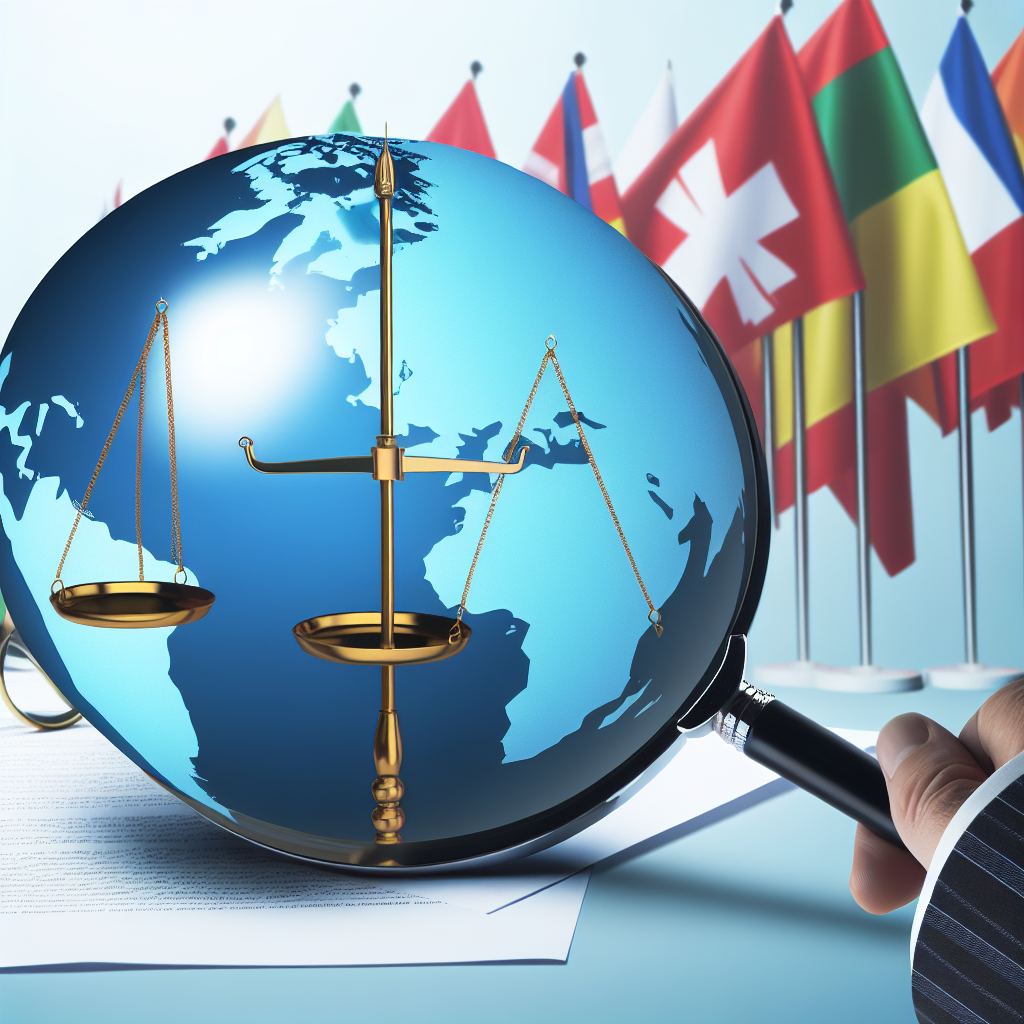
Export Controls and Sanctions: Navigating International Trade Laws
Understanding Export Controls and Sanctions
In the realm of international trade, navigating export controls and sanctions is crucial for businesses aiming to operate lawfully and competitively. Export controls refer to government restrictions on the sale and export of certain goods, technology, and services, while sanctions are punitive measures imposed on countries, entities, or individuals to influence their behavior. Both are designed to protect national security and foreign policy interests, but they are complex and multifaceted, requiring a comprehensive understanding to manage effectively.
The Importance of Compliance in Global Trade
Adhering to export controls and sanctions is not merely a regulatory requirement; it is essential for maintaining a reputable business. Non-compliance can result in severe penalties, including heavy fines, loss of export privileges, and even criminal prosecution. By ensuring compliance, businesses can safeguard their operations, enhance their reputation, and seize opportunities in the global marketplace.
Defining Export Controls
Export controls are legal restrictions implemented by countries to regulate the transfer of specific goods and technologies to foreign entities. These controls often apply to items that may have military applications or could contribute to the proliferation of weapons of mass destruction. Understanding the categories of controlled items and the licensing requirements for exports is essential for any company engaged in international trade.
The Role of Sanctions
Sanctions are typically imposed by governments to exert economic pressure on countries or entities that are seen as threats to national security or international peace. These measures can include trade embargoes, asset freezes, and restrictions on financial transactions. Companies must be vigilant in monitoring sanctioned parties to avoid engaging in prohibited transactions.
Navigating U.S. and U.K. Regulations
The regulatory frameworks governing export controls and sanctions differ between countries, particularly between the U.S. and the U.K. In the U.S., the Bureau of Industry and Security (BIS) and the Office of Foreign Assets Control (OFAC) are key bodies responsible for export control regulations and sanctions enforcement. Meanwhile, in the U.K., the Export Control Joint Unit (ECJU) oversees similar regulations under the guidance of the Export Control Act and various international sanctions regulations.
Key Regulations in the U.S.
U.S. export controls and sanctions involve numerous regulations, including:
- Export Administration Regulations (EAR)
- International Traffic in Arms Regulations (ITAR)
- Economic Sanctions Regulations
Each of these regulations outlines specific requirements for compliance, as well as potential penalties for violations.
Understanding U.K. Regulations
In the U.K., export controls are primarily guided by:
- Export Control Act 2002
- EU Sanctions Regulations
The U.K. government implements sanctions under various legal frameworks, ensuring alignment with international obligations and foreign policy goals.
International Perspectives: The UAE Context
The United Arab Emirates (UAE) presents a unique landscape for businesses navigating export controls and sanctions. With its strategic location as a global trade hub, understanding the UAE’s regulatory environment is paramount. The UAE enforces its own export controls and adheres to international sanctions, aiming to foster compliance while engaging with diverse markets.
UAE Export Control Framework
The UAE’s export control laws are designed to ensure compliance with international standards. Companies operating in the UAE must be aware of the regulations enforced by authorities such as the Ministry of Economy and the UAE Central Bank. This includes strict adherence to international sanctions imposed by the United Nations and relevant partner nations.
Best Practices for Compliance
To effectively navigate export controls and sanctions, organizations should implement several best practices:
- Conduct Risk Assessments: Regularly assess and identify potential compliance risks associated with exporting goods or services.
- Implement Training Programs: Educate employees on export control laws, sanctions, and company policies to establish a culture of compliance.
- Create Comprehensive Compliance Programs: Develop tailored compliance programs that include monitoring mechanisms, reporting procedures, and regular audits.
- Stay Updated: Regularly review changes in regulations and sanctions to remain compliant with evolving legal frameworks.
The Role of Technology in Compliance
In an increasingly digital world, technology plays a significant role in enhancing compliance efforts. Automated systems can help monitor transactions, screen for sanctioned parties, and conduct due diligence. Leveraging technology not only streamlines compliance processes but also minimizes the risk of human error.
The Consultant Global: Your Trusted Advisor
At The Consultant Global, we understand the intricacies of navigating export controls and sanctions in international trade. Our extensive and unique experience in the field positions us as your trusted advisor. With a focus on providing tailored consultancy services, we aim to elevate your business to new heights, ensuring compliance while optimizing opportunities.
Our diverse team, fluent in multiple languages including English, Turkish, Azerbaijani, Russian, and French, allows us to effectively engage with clients from various cultural backgrounds. We pride ourselves on being able to understand and tailor our approach to meet the specific needs of our clients, making us uniquely positioned in the GCC, particularly in the UAE.
Conclusion: Embracing Compliance for Success
Navigating export controls and sanctions is a complex but essential aspect of international trade. By adopting best practices and staying informed about evolving regulations, companies can effectively mitigate risks while pursuing global opportunities. With The Consultant Global by your side, you can confidently navigate these waters, knowing that you have a trusted advisor committed to your success.




Leave a Reply